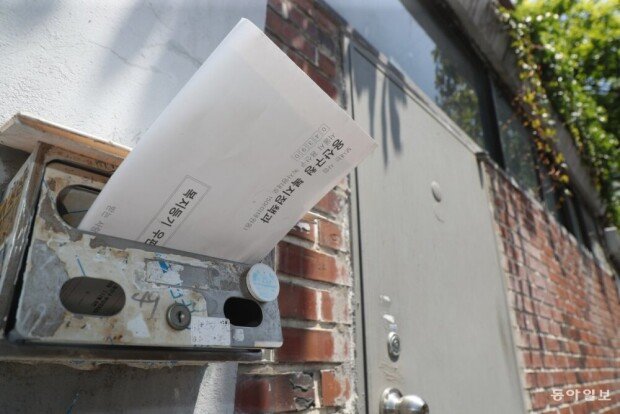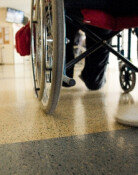'Welfare Registration' saves 1,100 from dying alone
'Welfare Registration' saves 1,100 from dying alone
Posted June. 03, 2023 08:30,
Updated June. 03, 2023 08:30

"Is Mr. Kim Ji-ho (pseudonym) there? This is the post office."
Sweat drips from the face of mailman Yoo In-joon, 57, on a sweltering May 25th as he pants heavily, standing before an old iron gate of a rundown four-story building in Huam-dong, Yongsan-gu, Seoul. Yoo calls out repeatedly. But there is no response. Listening carefully at the door, he detects no sound, and despite several knocks, no one comes out. 'Is there no one here?' he ponders, 'Or is there someone inside who doesn't have the strength to respond?'
Yoo cautiously approached, pressing his nose to the gap in the door. He was checking for any noticeable odors, a critical yet emotionally daunting part of his job. A moment of silence followed, the tension palpable in those one or two seconds. He dreaded the thought, but the sudden detection of an 'unfamiliar stench' would be a chilling indication of what might lie inside. A stark reminder that someone may have tragically ended their life in solitude over the iron gate - a phenomenon all too well-known as 'dying alone.'
It was the 'welfare registered' mail that brought Yoo to the door of Kim, a complete stranger to him. A revolutionary government initiative, the welfare registered mail service commenced as a trial in July last year, seeking to find and aid people falling through the welfare system cracks. When signs of crisis appear - an individual defaulting on their electricity bill over a prolonged period or an abrupt increase in medical expenses - local governments spring into action, sending welfare registered mail to the affected household. Familiar with the neighborhood, postmen like Yoo then hand-deliver the mail, becoming the vital link between the at-risk individual and the welfare services.
Inside Yoo's mailbag are welfare registered envelopes from the district office, masks, basic medical supplies like joint pain patches, and pamphlets outlining various welfare services available for residents in need. But the task extends beyond mere delivery. Yoo aims to meet recipients personally, not only to confirm their existence but also to assess if they are in immediate crisis.
In 2021, South Korea saw 3,378 people dying alone, accounting for one out of every 100 deaths that year, according to the Ministry of Health and Welfare. The welfare registered mail service, piloted in eight local governments, including Yongsan-gu, Seoul and Samcheok City, Gangwon Province, has identified over 1,100 at-risk households within the first nine months. As of April, the number of participating local governments has surged to 47.
doorwater@donga.com · easy@donga.com







